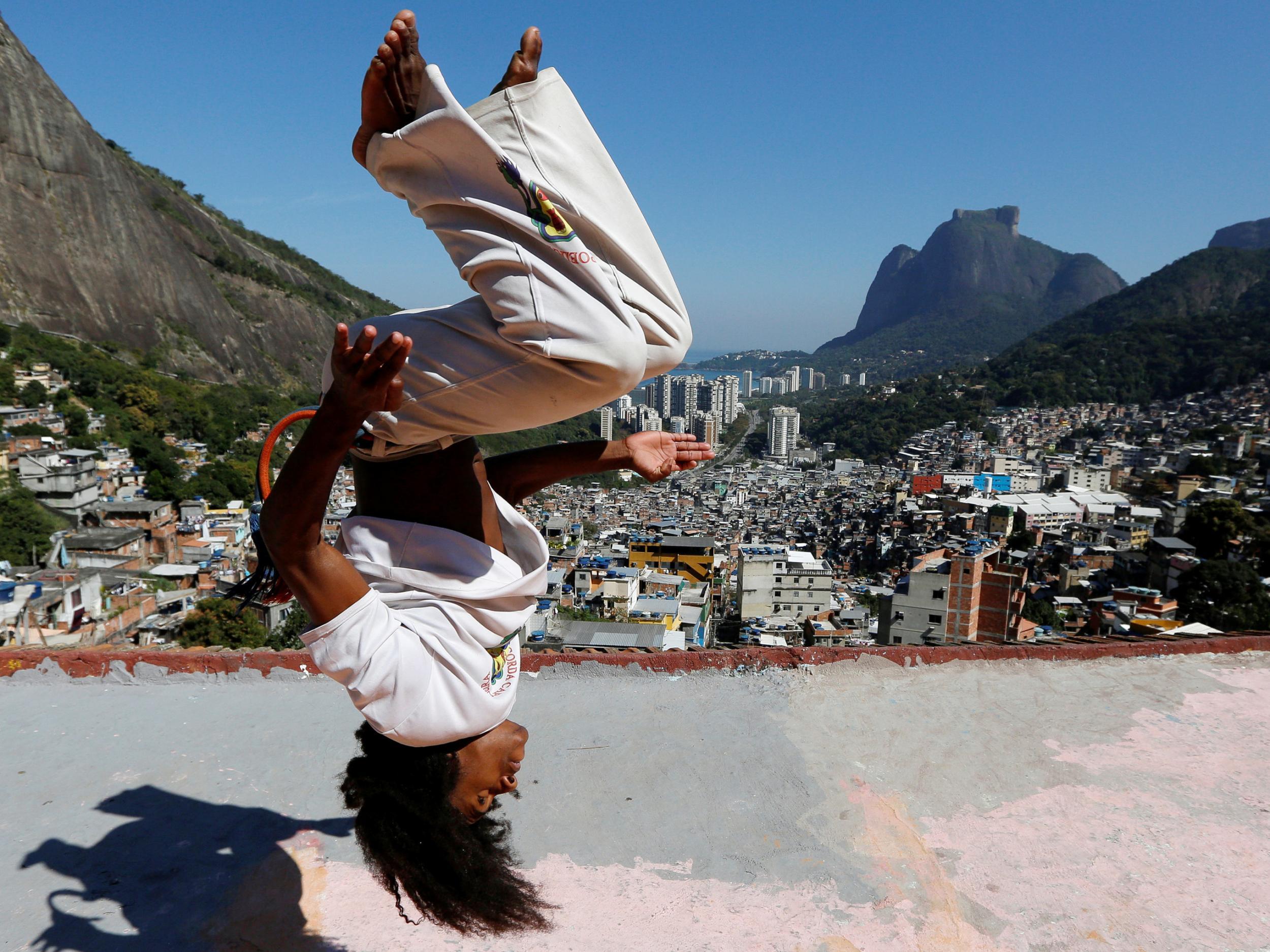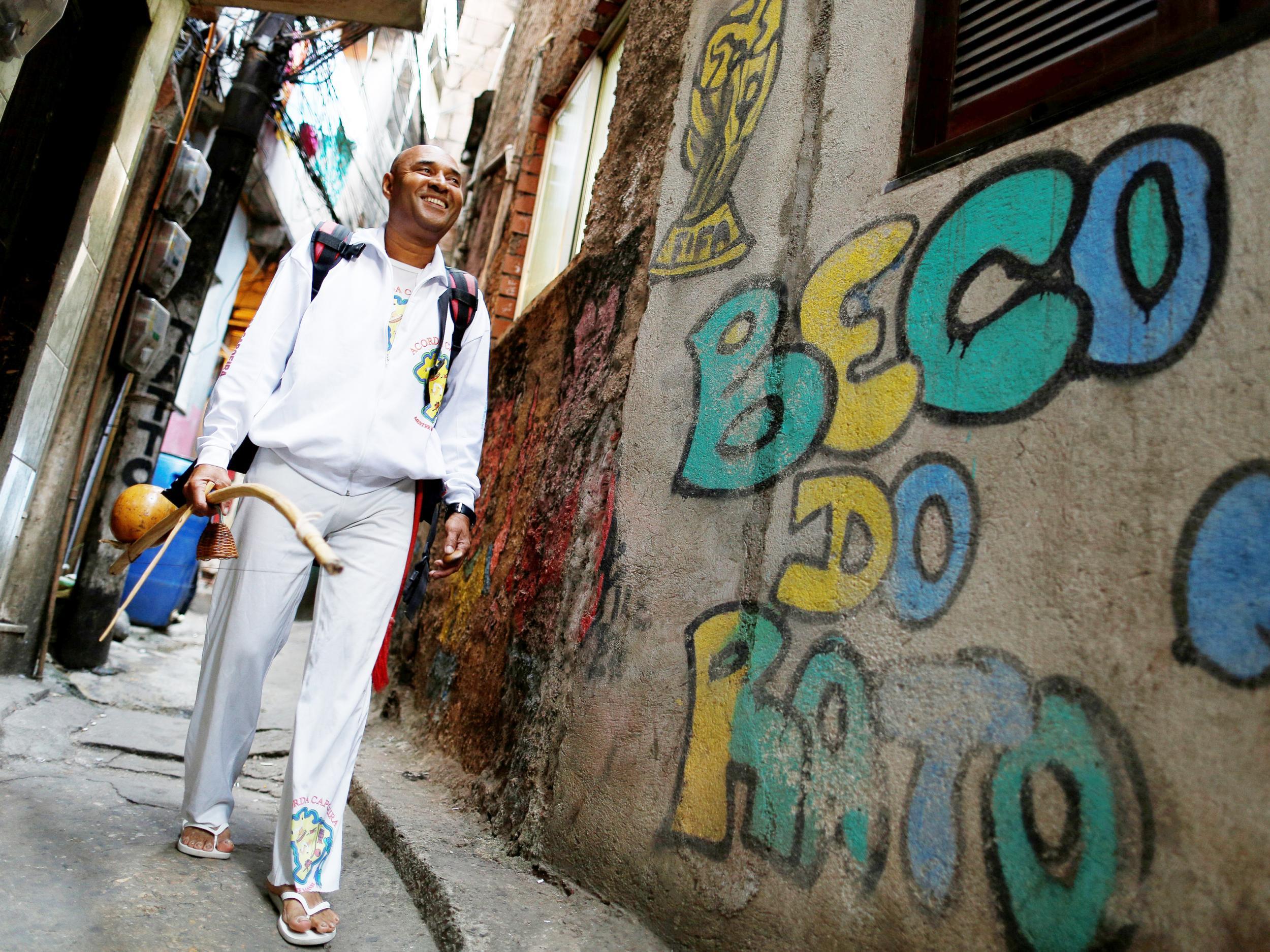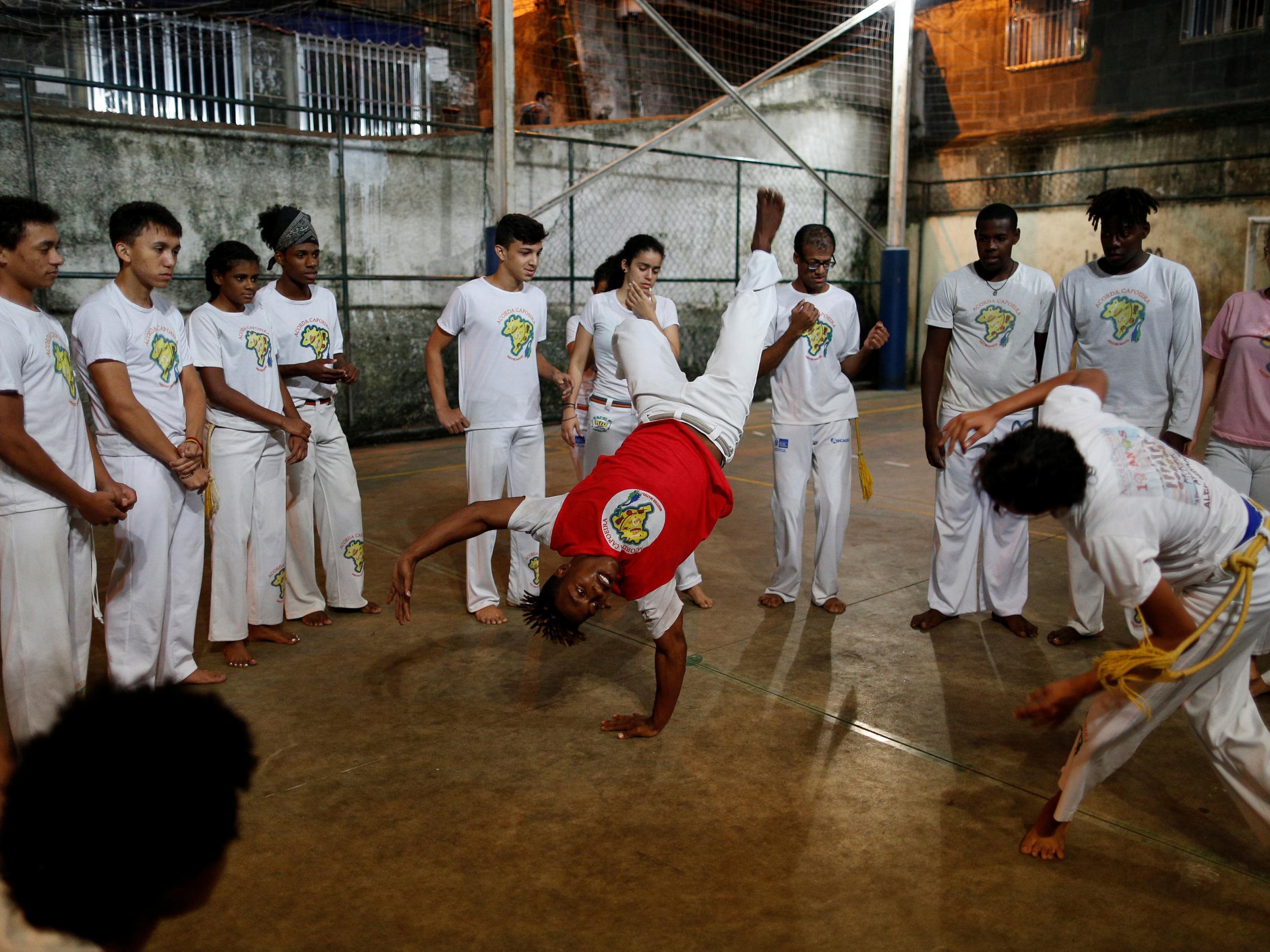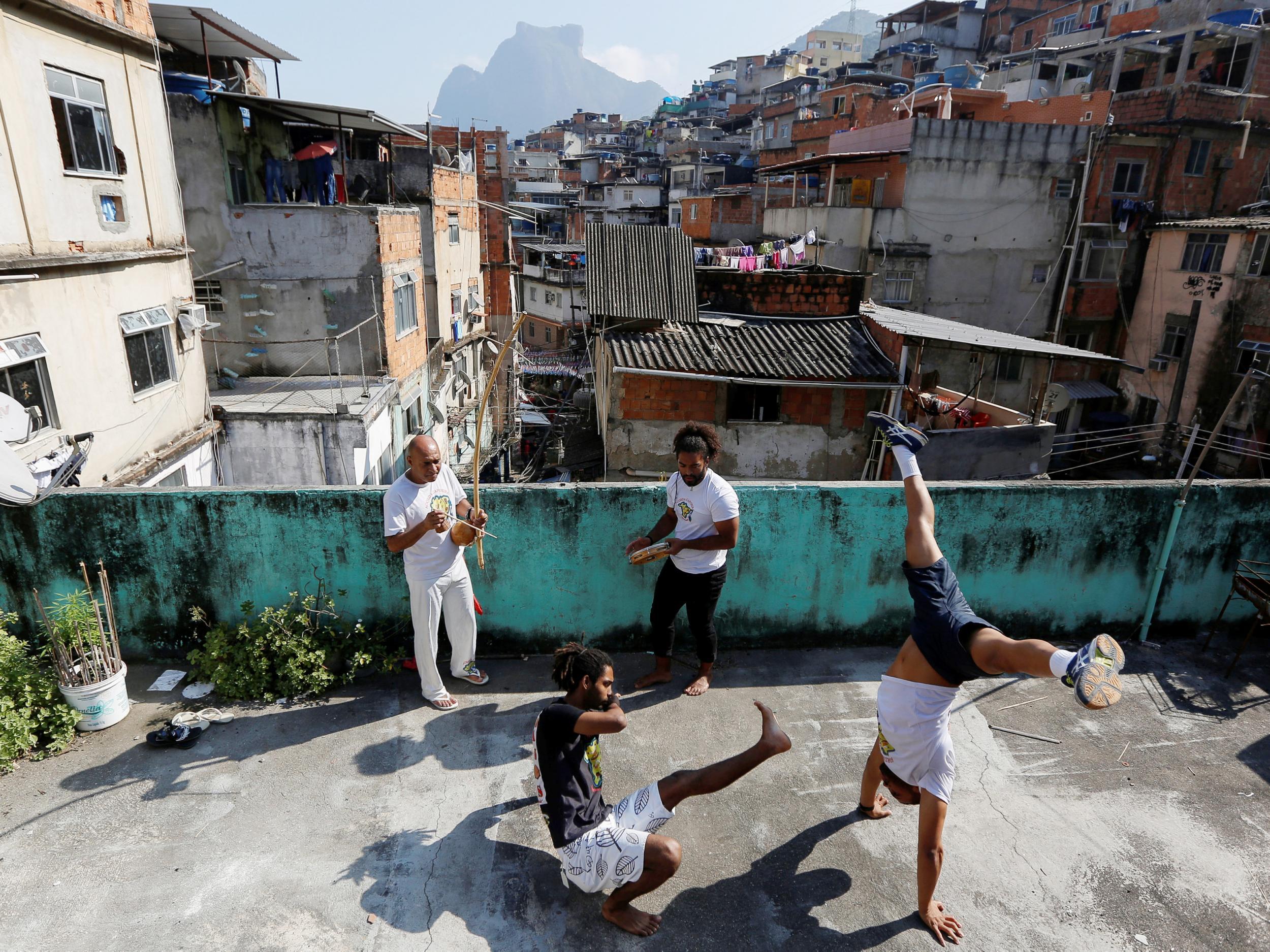Rio 2016: How capoeira is helping youths in one of the city's most violent favelas
Meet 'Master Manel' – who hopes teaching the Brazillian martial art in one of the city's most notorious favelas will help young people feel connected ahead of the olympics

Wherever Manoel Pereira Costa goes, his neighbours are eager to greet him in maze-like Rocinha, one of the biggest and best-known slums, or favelas, that dot the Rio de Janeiro landscape.
Mr Costa, or “Master Manel” as he is known, is revered for helping local youths in the troubled neighbourhood by teaching capoeira, a Brazilian martial art.
With thousands of athletes now descending on Rio for the Olympics, which start this Friday, local dance groups are in training for coveted spots in the opening ceremony and Master Manel believes that his impoverished students are feeling a connection to something bigger. “Even in this community, with our problems, we are part of the world,” he said. “And the students have to know that they can step out into it, that they can do anything they want.”

Master Manel came to Rio at the age of 19 from the north-eastern state of Bahia. Over the past three decades, he has run neighbourhood workshops that give kids a chance to immerse themselves in a tradition with roots in the dance, fighting and percussion practices of Africans brought to Brazil as slaves. In a favela with a history of violence between police and drug gangs, or armed battles between traffickers themselves, capoeira is an outlet that gives kids a sense of community – its practice a collective exercise blending characteristics of drum circles, sparring and tag-team gymnastics.

Currently with some 300 students, Master Manel does not charge for the courses. His program, known as “Awaken Capoeira”, instead relies on financing from donors that include the city government and local businesses.

As the city gears up to host the first Olympics in South America, Master Manel’s class has recently been visited by famous Brazilian gymnast Laís de Souza, who competed at the 2004 and 2008 Olympics, and Rio’s secretary for sport and leisure Rodrigo Vizeu, who has been an important figure in the lead up to the summer games. The visits, Master Manel believes, have a positive impact on his students, who can often feel marginalised and ignored by the authorities.
“There is a very negative image of this neighbourhood,” said the 56-year-old. “We more than anything want to teach about community, about citizenship, so that kids understand that they are part of something.”
Additional reporting by Reuters
Join our commenting forum
Join thought-provoking conversations, follow other Independent readers and see their replies
Comments
Bookmark popover
Removed from bookmarks